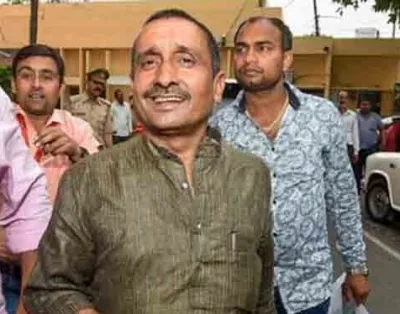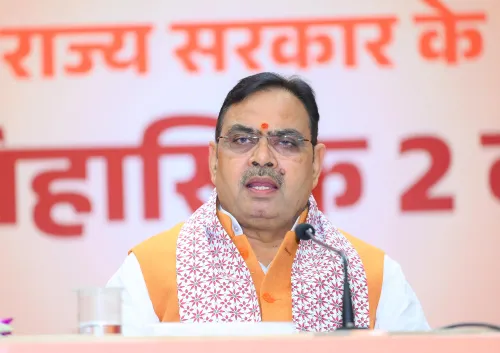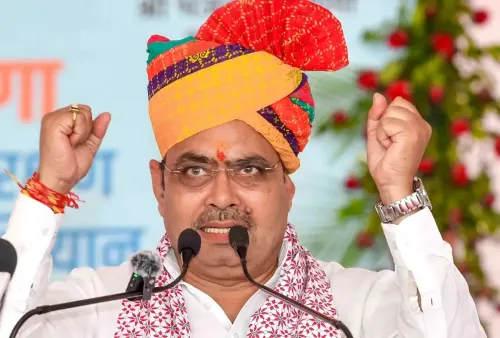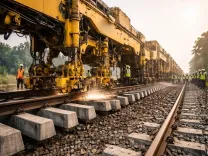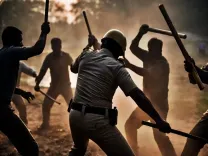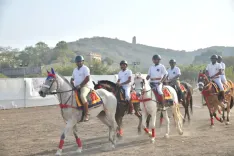What Prohibitory Orders Were Imposed in Rajasthan's Basanpir Village Due to a 'Chhatri' Dispute?
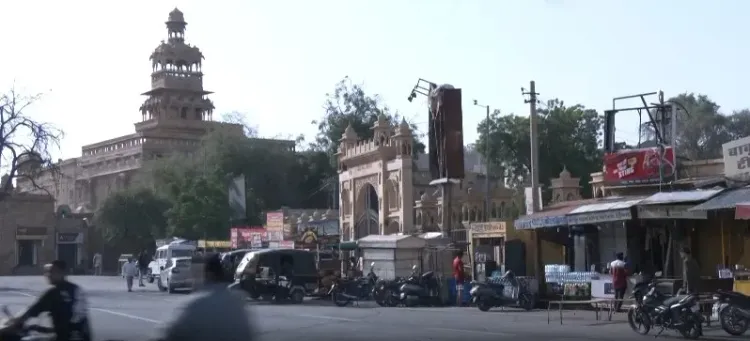
Synopsis
Key Takeaways
- Prohibitory orders are enforced to maintain peace.
- The dispute involves the reconstruction of historical Chhatris.
- Violence erupted between communities over construction activities.
- Law enforcement has taken strict measures to control the situation.
- Public cooperation is essential for restoring harmony.
Jaipur, July 16 (NationPress) In response to escalating tensions surrounding a 'chhatri' (cenotaph) dispute in Basanpir village of Jaisalmer, authorities enacted Section 163 of the Bharatiya Nagrik Suraksha Sanhita (BNSS) on Wednesday to uphold public safety.
The prohibitory measures were implemented by Sub-Divisional Magistrate (SDM) Saksham Goyal, who expressed worries about the potential for unrest in the region.
The conflict originated from the reconstruction of ancient Chhatris located by a pond in Basanpir. These historic structures had previously been demolished for reasons that remain unclear, leading to a continuous demand for their restoration from one faction within the village.
When the administration sanctioned the rebuilding, tensions heightened.
On July 10, construction commenced for the Chhatris of Jhunjhar Ramchandra Singh Sodha and Jhunjhar Paliwal. However, resistance arose from another community, culminating in stone-pelting incidents.
Numerous vehicles were damaged, and women actively participated in the unrest. The police had to step in and used a lathicharge to restore order.
In the aftermath, four individuals, including a police constable, sustained injuries. Law enforcement apprehended over two dozen people, comprising more than 15 women, who were subsequently jailed.
While the situation was stabilized, political figures announced their intentions to visit the village and conduct public meetings, raising concerns about the potential for renewed disturbances. Consequently, Section 163 was enforced as a precaution.
Notably, following the July 10 incident, various political leaders, including Jaisalmer MLA Chhotu Singh Bhati, Pokaran MLA Mahant Pratap Puri, Shiv MLA Ravindra Singh Bhati, former MLA Sang Singh Bhati, and other BJP representatives visited the location.
Former Union Minister Kailash Chaudhary also called for a visit to the village, while former minister Harish Chaudhary has plans to visit on July 19, prompting swift action from the administration.
Under the prohibitory orders, the possession of firearms, such as revolvers, pistols, rifles, and sharp objects like swords, spears, knives, and daggers, is strictly forbidden in public areas of Basanpir.
Gatherings of five or more individuals are restricted, and organizing any rally, procession, or meeting without prior authorization is expressly disallowed. The orders also prohibit the dissemination of slogans, speeches, pamphlets, or audio-visual content that may disrupt communal harmony or provoke religious sentiments.
The use of loudspeakers or sound-amplifying equipment is forbidden without prior consent, and even when permitted, specific time limits and volume levels must be adhered to.
SDM Goyal urged the public to refrain from spreading rumors and to contribute to maintaining peace and cooperating with the authorities.
He stressed that the administration remains vigilant and will pursue strict legal action against anyone violating the prohibitory regulations.



